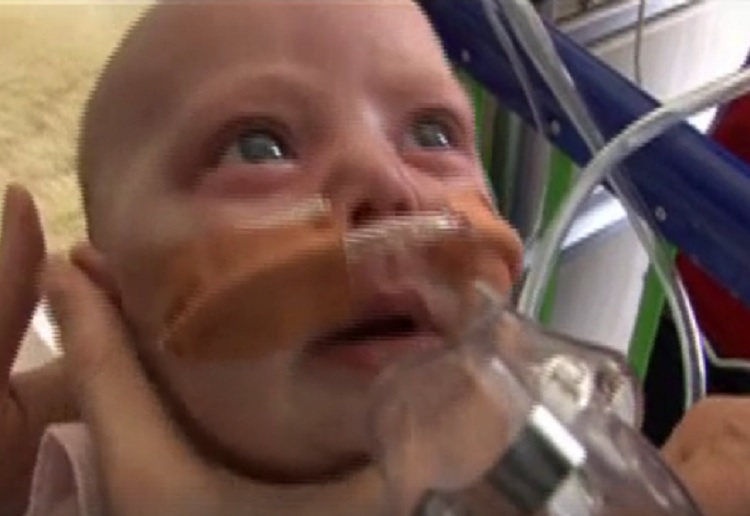Dr Sophie Wen from Lady Cilento Children’s Hospital talks about treating a child suffering from whooping cough.
*TRIGGER warning – some readers may find this content distressing
Dr Sophie Wen spoke to QLD Health about what happens when children come to hospital with whooping cough, and what can be done to prevent contracting the disease.
What is whooping cough?
Whooping cough is a respiratory infection, meaning it affects the parts of the body used to breathe: the lungs and airways. It is highly contagious and can be life-threatening for babies and young children.
Caused by a type of bacteria called Bordetella pertussis, whooping cough usually starts with symptoms similar to a cold: a runny nose, sneezing and tiredness. After a few days, coughing begins.
Bouts of coughing caused by whooping cough can be very severe and frightening. The sick person can cough continuously for a long time before ending with a ‘crowing’ or ‘whooping’ noise as air is drawn back into their lungs.
They might cough so much that afterwards they gag or vomit. It’s possible that a child’s breath can become obstructed while they cough, which means they can’t get air into their lungs. If this happens they might become blue or even stop breathing.
Dr Wen says, “I’ve cared for children with whooping cough, usually very young babies who are not yet fully immunised or not old enough to be immunised. The worst part is watching these little babies cough and cough and cough, and they can’t catch a break. They cough until they stop breathing. It’s terrifying for the parents and it’s terrifying for the clinicians. You can only imagine what it’s like for the child.”
Dr Wen explains that whooping cough can cause serious complications. “Kids can have subconjunctival bleeding from coughing, where they bleed into their eyes. They can also develop pneumonia and brain damage from lack of oxygen. It’s devastating.”
Other complications from whooping cough in children can include seizures and brain haemorrhage. Whooping cough can also cause significant health problems in older children and adults, with an ongoing cough leading to sleep disturbances and sometimes fractured ribs.
Whooping cough usually starts with symptoms similar to a cold before coughing begins.
Whooping cough treatment
Treatment for whooping cough is a course of antibiotics. If given early enough, this can reduce symptoms and reduce the time the person is infectious to others. Even after the person has been given appropriate treatment, coughing attacks can continue for several weeks.
Each year, the majority of hospitalisations and deaths from whooping cough occur in babies younger than six months of age.
“At this stage, we can mainly give supportive treatment,” says Dr Wen. “We give treatment to manage complications, for example if they stop breathing we will intubate (assisted breathing via a tube) them and they will be cared for in ICU (Intensive Care Unit). Even in milder cases, sometimes babies cough so much they can’t breastfeed or bottle feed. We give them a feeding tube into their stomach and drip feed them that way.”
What can be done to prevent whooping cough?
The best way to prevent contracting whooping cough and serious complications of the disease is vaccination.
Vaccination for whooping cough is recommended for pregnant women in the third trimester (preferably between 28 to 32 weeks) to protect the mother and her unborn child. Pregnant women should receive a whooping cough vaccination with every pregnancy, even when pregnancies are close together.
Vaccination is also recommended for babies at 6 weeks, 4 and 6 months of age. Booster doses are due at 18 months and 4 years of age. Year 7 students are also offered a booster as part of the school immunisation program. These vaccines are provided for free. If your child’s vaccinations are overdue see your GP to arrange a catch up.
A booster dose is also recommended – but not funded – for any adult who wants to reduce their risk of infection. Vaccination is particularly important for people living with or caring for babies under 6 months of age, for example fathers, grandparents and childcare workers
When deciding whether to vaccinate, Dr Wen says, “It’s hard for parents not having seen a case of whooping cough. Look at a video of a child with whooping cough. No one would want their child to go through that.”
She also encourages pregnant women to get vaccinated.
“It’s safe to receive the whooping cough vaccine during pregnancy. The child won’t have any antibodies to pertussis yet: the vaccination you get will be the only form of protection for them. Even if you’ve been vaccinated or infected in the past, those antibodies wear off.”
The below video highlights just how horrible it is for young infants who are too young for the vaccination.
This video was published in NZ by Waikato DHB and is an example of a baby’s struggle with whooping cough. While this clip had me in tears it is something that really needs to be shared.
The video has had over 3 million views.
*Warning some readers may find this video distressing.*
A couple of years ago Rebecca Harreman shared a video to her own Facebook page of her baby boy struggling with whooping cough. To hear it breaks your heart, but it highlights even more the need to protect our precious new babies.
Symptoms such as a runny nose, a slight fever and a uncontrollable cough should not be ignored.
What are the symptoms? via NSW Health
•Whooping cough usually begins like a cold with a blocked or runny nose, tiredness, mild fever and a cough.
•The cough gets worse and severe bouts of uncontrollable coughing can develop. Coughing bouts can be followed by vomiting, choking or taking a big gasping breath which causes a “whooping” sound. The cough can last for many weeks and can be worse at night.
•Some newborns may not cough at all but they can stop breathing and turn blue. Some babies have difficulties feeding and can choke or gag.
•Older children and adults may just have a cough that lasts for many weeks. They may not have the whoop.
Share your comments below
Read more:
- Watching a baby struggle with whooping cough is far from easy
- Toddler hospitalised with rare vaccine preventable disease
- Mum shares 10 things parents who don’t vaccinate need to know




















-

-
-
nadine_hill said
- 23 Mar 2018
-

-
-
mom90758 said
- 23 Mar 2018
Post a comment2:27 pm
1:22 pm
To post a review/comment please join us or login so we can allocate your points.